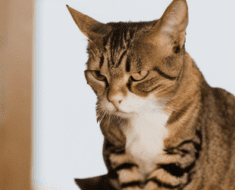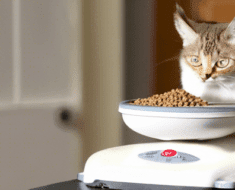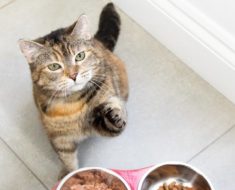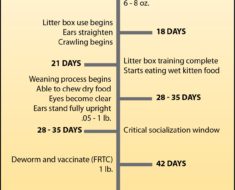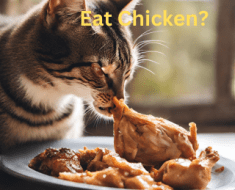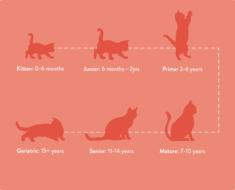The best cat food for indoor cats is a balanced and nutritious diet that meets their specific needs. Indoor cats have a more sedentary lifestyle, which can lead to weight gain and health issues.
Therefore, it is important to choose a cat food that is formulated to support their overall health and wellbeing. Look for high-quality protein sources, such as chicken or fish, and avoid artificial additives or fillers. Additionally, consider the age and specific dietary requirements of your cat when selecting their food.
Providing them with a well-balanced diet will help ensure they maintain a healthy weight and have a strong immune system.
The Importance Of Choosing The Right Cat Food
For indoor cats, providing the right nutrition is essential to ensure their overall health and well-being. Indoor cats have unique nutritional needs that differ from those of their outdoor counterparts. They lead a more sedentary lifestyle and don’t have the same opportunities for exercise and hunting. As a responsible cat owner, it is crucial to select the best cat food for indoor cats that meets their specific dietary requirements. Choosing the right cat food can have a significant impact on your cat’s health and happiness.
Nutritional Needs Of Indoor Cats
Indoor cats require a diet that supports their specific nutritional needs. Since they are not as active as outdoor cats, they have lower energy requirements. A balanced cat food should be formulated with adequate protein, healthy fats, and essential vitamins and minerals to promote muscle growth and maintenance, support immune function, and maintain a healthy weight. Additionally, indoor cats benefit from a higher fiber content in their diet to prevent hairballs and promote healthy digestion. It’s crucial to choose cat food that is specifically formulated for indoor cats to ensure they get the nutrients they need for optimum health.
Impact Of Diet On Cat’s Health
The diet you choose for your indoor cat has a profound impact on their overall health. Feeding your cat the right food can help prevent certain health issues that are common among indoor cats, such as obesity, urinary tract problems, and dental diseases. A well-balanced diet that is rich in quality protein, low in carbohydrates, and contains essential fatty acids plays a crucial role in maintaining a healthy weight, supporting lean muscle mass, and promoting a healthy coat and skin. By making the right food choices, you can help your indoor cat live a long, happy, and healthy life.
Factors To Consider When Selecting Cat Food
Selecting the best cat food for indoor cats involves considering factors like protein content, specialized formulas for indoor felines, and essential nutrients to support their health and wellbeing. Opt for high-quality options to keep your indoor cat healthy and happy.
Selecting the right cat food for your indoor feline companion is essential for their well-being. The diet you provide plays a vital role in maintaining their overall health. When it comes to choosing the best cat food, there are several factors you should consider as a responsible pet owner. From protein content to the ingredients to avoid, every aspect of the food you pick can have a significant impact on your cat’s nutrition and longevity.
Protein Content
- Protein is a crucial nutrient for all cats, including indoor cats.
- Ensure the cat food you choose has a high percentage of protein.
- Look for cat food with animal-based protein sources like chicken, turkey, or fish.
- Protein content should be listed as the primary ingredient on the cat food label.
- A diet rich in protein helps maintain lean muscle mass and supports overall body functions.
Ingredients To Avoid
- Avoid cat foods that contain fillers like wheat, corn, or soy.
- These fillers provide little nutritional value and can cause digestive issues.
- Artificial preservatives, flavors, and colors should be avoided as well.
- Opt for cat food formulas that are free from by-products.
- Choose a cat food brand that uses real, recognizable ingredients.
Choosing the best cat food for your indoor cats requires careful consideration of factors like protein content and avoiding certain ingredients. By providing a nutritionally balanced diet, you can ensure your feline companion maintains optimal health throughout their lives. Remember to consult with your veterinarian to determine any specific dietary requirements your cat may have and make the best decision for their well-being.
Types Of Cat Food Suitable For Indoor Cats
Types of Cat Food Suitable for Indoor Cats
Dry Cat Food
Dry cat food is a convenient option for indoor cats as it can be left out throughout the day.
Wet Cat Food
Wet cat food provides essential hydration for indoor cats and can be more palatable for picky eaters.
Raw Diet Options
Raw diets for cats consist of uncooked meat, bones, and organs that mimic a cat’s natural diet in the wild.
Expert Recommendations For Optimal Nutrition
Expert recommendations are crucial for providing optimal nutrition to your indoor cats. With the countless options available in the market, it can be challenging to determine the best cat food for your feline friend. In this guide, we’ll explore the top brands recommended by veterinarians and the benefits of custom diet plans for indoor cats.
Top Brands Recommended By Veterinarians
When it comes to feeding your indoor cat, it’s essential to choose a high-quality cat food brand that aligns with their nutritional needs. Veterinarians often recommend Royal Canin, Hill’s Science Diet, and Purina Pro Plan for indoor cats. These brands are known for their premium ingredients and specialized formulas tailored to meet the unique requirements of indoor felines. They offer a wide range of options, including dry kibble and wet food, catering to various dietary preferences.
Custom Diet Plans
Veterinarians emphasize the significance of tailored diet plans for indoor cats to ensure they receive the necessary nutrients while maintaining a healthy weight. A personalized diet plan takes into account the cat’s age, weight, activity level, and any specific health concerns. Through a custom diet plan, nutritional requirements can be met, helping prevent common health issues such as obesity and urinary tract problems.
Transitioning Your Cat To A New Food
Transitioning your indoor cat to a new food is an important process that requires patience and careful monitoring. Whether you’re switching to a different brand or introducing a new type of diet, it’s essential to make the transition gradual to avoid digestive issues and ensure your cat’s overall well-being.
Gradual Switching Process
When transitioning your cat to a new food, it’s crucial to do so gradually. Start by mixing a small amount of the new food with your cat’s current food. Over the course of 7-10 days, increase the ratio of the new food while decreasing the old food. This slow transition allows your cat’s digestive system to adapt to the new food without causing upset stomach or refusal to eat.
Monitoring Your Cat’s Response
- Observe your cat for any signs of allergic reactions or digestive upset during the transition period. These may include vomiting, diarrhea, or decreased appetite. If you notice any concerning symptoms, consult your veterinarian.
- Keep track of your cat’s weight and energy levels. If you notice any significant changes, it could indicate that the new food is not suiting your cat’s needs, and adjustments may be necessary.
Frequently Asked Questions For What’s The Best Cat Food For Indoor Cats
What Is The Healthiest Food For An Indoor Cat?
The healthiest food for an indoor cat is a balanced diet of high-quality cat food. It should include essential nutrients, such as protein from meat, vitamins, and minerals. This helps maintain a healthy weight, supports the immune system, and promotes overall well-being.
What Is The Best Food To Feed A House Cat?
The best food for a house cat is high-quality cat food that is specifically formulated to meet their nutritional needs. This food should contain a balanced combination of protein, fats, and carbohydrates, along with essential vitamins and minerals. It’s important to choose a food that suits your cat’s age, activity level, and any specific dietary requirements they may have.
What Is The Best Store Bought Dry Cat Food For Indoor Cats?
The best store-bought dry cat food for indoor cats is one that is high-quality, balanced, and meets their nutritional needs. Look for brands with real meat as the first ingredient for optimal health.
Is Dry Or Wet Food Better For Cats?
Both dry and wet food have their benefits. Dry food can help maintain dental health, while wet food provides extra hydration. It’s best to offer a balanced diet of both, as each type has its own advantages for a cat’s overall well-being.
What Are The Nutritional Needs Of Indoor Cats?
Indoor cats require a balanced diet rich in protein, fiber, and essential vitamins for overall health.
Conclusion
Ultimately, selecting the best cat food for indoor cats is crucial for their overall well-being. By prioritizing high-quality ingredients and meeting their specific dietary needs, you can ensure your feline companion stays healthy and happy. Remember, consulting with a veterinarian is always a wise decision.
